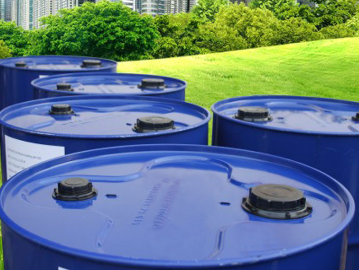
Gasoline detergent is a chemical additive that is added to gasoline to enhance engine performance. It works by cleaning and removing harmful deposits and deposits that can accumulate in the fuel system and engine components. This essay will discuss how gasoline detergent boosts engine performance by explaining its function, benefits, and drawbacks.
The primary function of gasoline detergent is to remove deposits and prevent the formation of new ones. When gasoline is burned in the engine, it leaves behind residues and deposits on various parts of the fuel system and engine. Over time, these deposits can build up and affect engine performance by reducing fuel efficiency, clogging fuel injectors, and interfering with the combustion process. Gasoline detergent contains additives that have strong cleaning properties to dissolve and disperse these deposits. This ensures that the fuel system and engine components remain clean, allowing for optimal performance.
One of the main benefits of using gasoline detergent is improved fuel efficiency. Deposits in the fuel system, such as on fuel injectors and intake valves, can disrupt the proper flow of fuel and air, leading to incomplete combustion. This results in reduced fuel efficiency and increased emissions. By using gasoline detergent regularly, these deposits can be effectively removed, restoring the proper fuel flow and air intake. As a result, the engine can operate more efficiently, improving fuel economy and reducing emissions.
Gasoline detergent also helps to maintain the performance of the fuel injectors. Fuel injectors are responsible for spraying the right amount of fuel into the engine's combustion chamber. However, over time, deposits can accumulate on the injectors, leading to a poor spray pattern and uneven fuel distribution. This can result in rough idling, misfiring, and reduced power. Gasoline detergent helps to keep the injectors clean and prevent the buildup of deposits, ensuring that fuel is sprayed accurately and evenly. This enhances engine performance by promoting smooth and efficient combustion.
In addition to fuel efficiency and injector performance, gasoline detergent can also improve overall engine responsiveness and power. Deposits on intake valves and in the combustion chamber can cause a loss of compression and restrict the flow of air. This can lead to reduced power and sluggish acceleration. By using gasoline detergent regularly, these deposits can be eliminated, allowing for better airflow and improved combustion. This enhances engine responsiveness and power output, resulting in a more enjoyable driving experience.
Despite the numerous benefits of using gasoline detergent, there are some drawbacks to consider. Firstly, gasoline detergent may not be effective for severe deposit buildup. If the deposits have hardened or become excessive, they may require more aggressive cleaning methods, such as manual cleaning or the use of stronger additives. Additionally, not all gasoline detergents are created equal. The effectiveness of a detergent can vary depending on the concentration and quality of the additives used. Therefore, it is essential to choose a reputable and high-quality product to ensure maximum performance improvement.
In conclusion, gasoline detergent boosts engine performance by cleaning and removing harmful deposits in the fuel system and engine components. It improves fuel efficiency by restoring proper fuel flow and air intake. It also maintains the performance of fuel injectors by preventing the buildup of deposits. Furthermore, it enhances overall engine responsiveness and power by promoting smooth and efficient combustion. However, it is important to choose a reputable product and consider more aggressive cleaning methods for severe deposit buildup. Overall, gasoline detergent is a valuable tool in optimizing engine performance and maintaining the longevity of the engine.